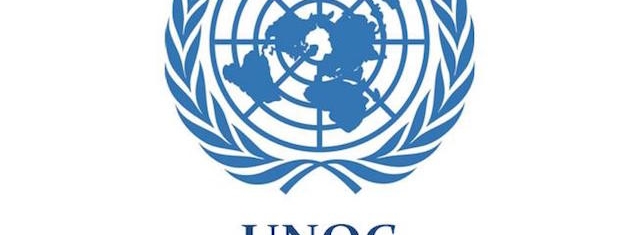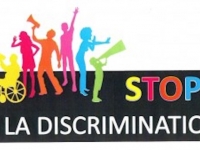Health
Committee on the Elimination of Discrimination against Women meets Civil Society
From Canada, Burundi, Bhutan and Belarus

UNOG logo (Source: UN)
USPA NEWS -
The Committee on the Elimination of Discrimination against Women this afternoon met with representatives of non-governmental organizations and a national human rights institution to receive information on the situation of women in Canada, Burundi, Bhutan and Belarus, whose reports will be considered
The Committee on the Elimination of Discrimination against Women this afternoon met with representatives of non-governmental organizations and a national human rights institution to receive information on the situation of women in Canada, Burundi, Bhutan and Belarus, whose reports will be considered during the first week of the session.
Civil society organizations welcomed the commitment of Canada to gender equality and the steps taken since the 2015 general elections. Canada had fallen from the first to the twenty-fifth place on the United Nations Gender Equality Index since 1995, they said, and warned that women´s structural inequality could not be adequately addressed by piecemeal improvements to a few laws and programmes. A comprehensive national response was needed, which would take an intersectional approach and recognize the different experiences of inequality.
In Burundi, the customary law routinely discriminated against women in relation to land and inheritance rights, said the non-governmental organizations, which urged the Committee to encourage Burundi to enact a national Succession Act to protect the equal inheritance rights of women and nullify those aspects of the customary law which discriminated against women, and to put in place safeguards to secure land tenure rights of women through the registration of land procedure.
Representatives of non-governmental organizations stressed that Bhutan continued to make significant progress in addressing all forms of discrimination against women, but gaps remained in the delivery mechanisms translating polices into action. The allocation of human and financial resources had to be enhanced so that measureable progress would be made in levelling the playing field. Other issues of concern were the situation of rural women, criminalization of abortion, high rates of suicide of women, domestic violence, and the poor representation of women in political and public life.
Violence against socially or politically active women by mostly male State officials was an issue of particular concern in Belarus. The State violence - beatings, sexual assault, involuntary termination of women´s parental rights, illegal and forced placement in mental institutions, indirect pushing to suicide, and deportation from Belarus ““ were used to punish and silence, to reduce women´s social activity, prevent them from political participation, and produce obedient female citizens.
Speaking during the discussion were representatives from the Women´s Association of Canada, Chair of Indigenous Governance and Canadian Feminist Alliance for International Action, BC CEDAW Group: Single Mothers Alliance of British Colombia, and Canada Without Poverty; Global Initiative on Economic, Social and Cultural Rights and Action Aid who spoke on Burundi; Tarayana Foundation and RENEW Organization from Bhutan; and the Coalition for Belarusian non-governmental organizations with the Helsinki Foundation for Human Rights, Poland, International Centre of Civil Initiatives “Our House“, Anti-discrimination Center “Memorial“ and the “Identity and Law“ Initiative Group with the International Lesbian, Gay, Bisexual, Trans and Intersex Association. Canadian Human Rights Commission spoke via an audio link. Source UNOG. To be continued next article
Liability for this article lies with the author, who also holds the copyright. Editorial content from USPA may be quoted on other websites as long as the quote comprises no more than 5% of the entire text, is marked as such and the source is named (via hyperlink).







